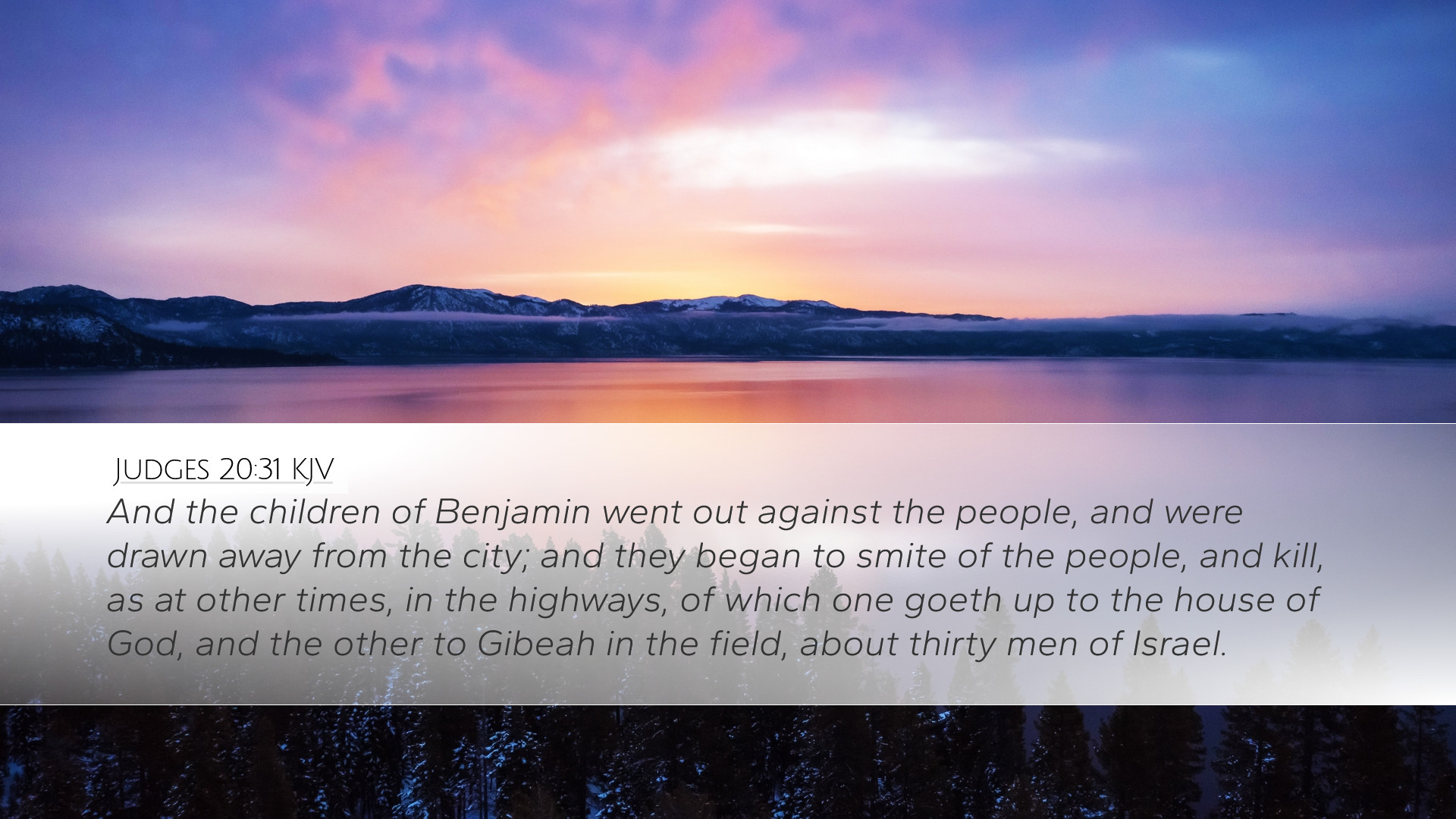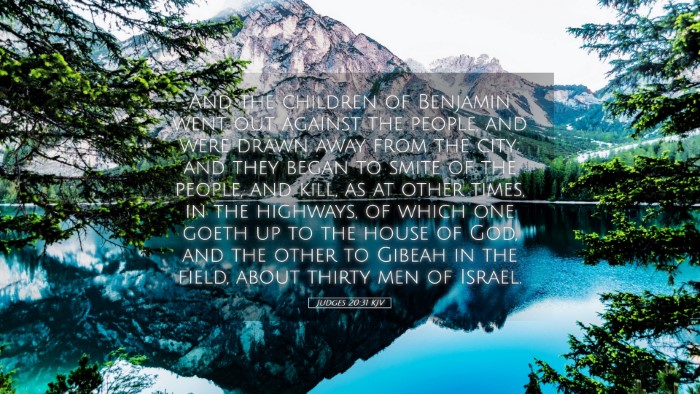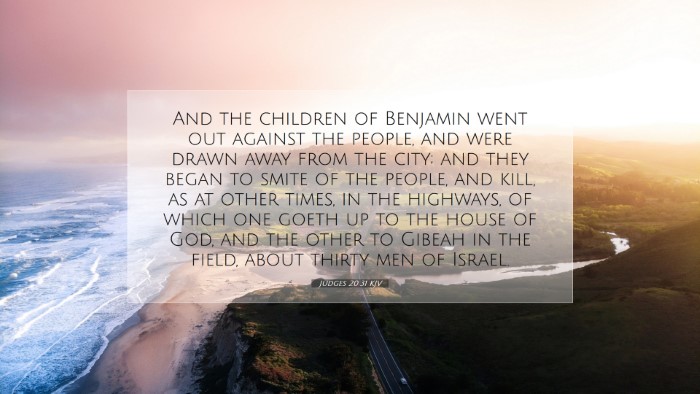Commentary on Judges 20:31
Bible Verse: Judges 20:31 - "And the children of Benjamin went out against the people and were drawn away from the city; and they began to smite of the people and kill, as at other times, in the highways, of which one goeth up to the house of God, and the other to Gibeah in the field: about thirty men of Israel."
Introduction
Judges 20:31 depicts a pivotal moment in the conflict between the tribe of Benjamin and the other tribes of Israel. This verse illustrates the strategic tactics used during the battle, as well as the tragic extent of moral decay among God's people. The insights from respected public domain commentaries such as those by Matthew Henry, Albert Barnes, and Adam Clarke provide valuable historical, theological, and practical implications derived from this text.
Contextual Background
To fully understand the nuances of Judges 20:31, it is essential to analyze the broader context of the Book of Judges. After the death of Joshua, Israel fell into cycles of sin and disobedience, which led to consequences that affected the entire nation. The civil war against the tribe of Benjamin arose after a grave incident in Gibeah, where a Levite's concubine was brutally raped and murdered. This act precipitated a collective response from the tribes of Israel seeking justice.
Verse Analysis
1. Warfare and Deception
In this verse, the reference to the Benjaminites being "drawn away from the city" reveals an element of tactical warfare employed by Israel. Matthew Henry notes that the Israelites utilized feigned retreats to lure their enemies into vulnerable positions. This strategy is reminiscent of various military tactics employed throughout history, emphasizing the importance of wisdom and cunning in battle.
2. The Casualties of War
The casualty count, "about thirty men of Israel," signifies not only the loss of life but also the emotional and spiritual toll of the ongoing conflict. Albert Barnes highlights that the losses endured by Israel were significant, showcasing that even within a righteous cause, the horrors of war lead to devastating consequences. The mention of fatalities calls the reader to reflect on the gravity of violence and its ripple effects on communities.
3. Geographic Significance
The reference to the highways that led to the house of God depicts a juxtaposition between the sacred and the profane. Adam Clarke emphasizes that the locations mentioned—one leading to the house of God and another to Gibeah—symbolize the moral decay that has transpired in Israel. The act of war happening near a significant religious site serves to remind the reader of the dire state of the Israelites' spiritual integrity during this period of their history.
Theological Reflections
This verse raises profound theological questions regarding divine justice, the sovereignty of God amidst human folly, and the consequences of communal sin. As seen in the previous chapters, God allows Israel to confront its sinful state through conflict, igniting self-examination and repentance.
- Divine Sovereignty: Commentators agree that God remains sovereign even in the chaos of human actions. The outcome, while tragic, serves His purposes in refining Israel.
- Justice and Retribution: The punishment for the atrocities committed against the Levite's concubine highlights the seriousness of justice in the eyes of God. It raises the question of collective responsibility and retribution.
- Moral Decline: The willingness of the tribes to engage in such bloody conflict over the sins of others exemplifies the decline of moral standards among God’s people.
Practical Applications
For contemporary pastors, students, and theologians, Judges 20:31 serves as a stark reminder about the consequences of social sin and the importance of accountability within the community of believers. Here are some practical applications derived from this verse:
- Community Accountability: The importance of holding each other accountable for moral and ethical standards reflects the theme of collective responsibility as seen in Israel’s response.
- Reflection on Warfare: The realities of spiritual warfare in today's context provoke a need for vigilance against the vices that lead to discord and conflict.
- Seeking God's Presence: The geographical mention of highways leading to the house of God invites modern believers to ponder their pathways and decision-making in light of God’s presence.
Conclusion
Judges 20:31 serves as a multifaceted verse filled with historical significance, cautionary themes, and theological depth. Drawing insights from Matthew Henry, Albert Barnes, and Adam Clarke helps elucidate the complexities of this narrative and its implications for God’s people. As we engage with this text, may we be compelled not only to seek justice and accountability among ourselves but also to earnestly pursue a deeper relationship with God, ensuring our actions align with His will.


